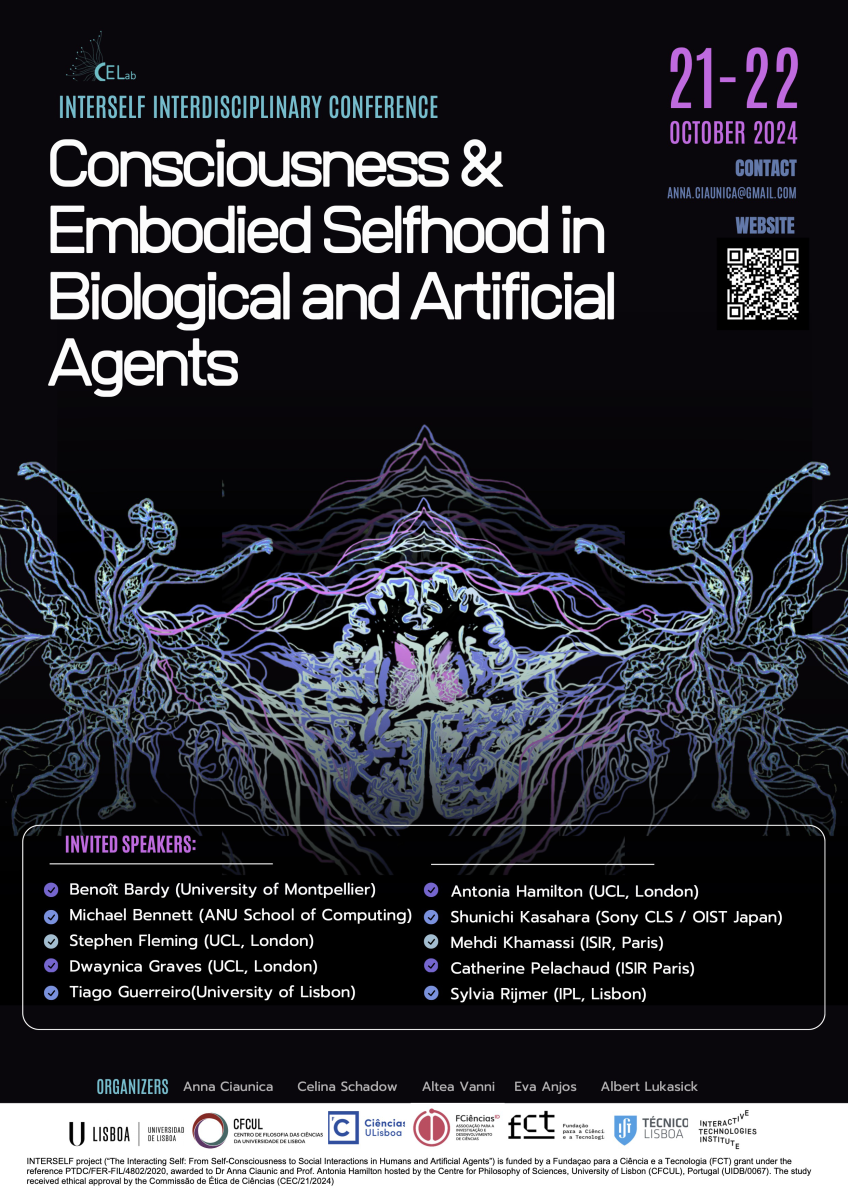Agents do stuff: they move around the world, have goals and face failures. Robots, cells, cats, humans and many other entities satisfy this minimal definition.
But what exactly is an agent? Is it a system able to act and change the world to satisfy its internal needs? Or is it a system able to feel in control of its actions? What are the fundamental differences between biological and artificial agents? Can artificial agents be conscious?
Recent technological advances have opened the doors to new forms of hybrid agents, combining human cognition and behavior with robotics, virtual reality, chatbots, xenobots and Artificial Intelligence (AI).
Joint efforts from philosophy, neuroscience, psychology, arts and computational neuroscience will address the following (non-exhaustive) questions:
- Are we able to establish a social bond with an artificial agent?
- In an environment where no other agents exist, what kind of selfhood can an – agent develop?
- How can we use virtual reality to study social interaction with artificial agents?
- If we are embodied in virtual reality and not in actual reality, how will selfhood change?
- What benefits does sense of agency provide beyond the basic ability to act as an agent? Why do some complex systems develop a sense of agency while others do not?
- How does an agent’s awareness of its own embodiment contribute to its sense of agency? Can artificial agents develop self-perception similar to biological agents?
- How does interacting with AI systems that display agency influence the human experience of selfhood and control? Can AI systems affect how humans perceive their own agency?
Contact: a.ciaunica@ucl.ac.uk (Anna Ciaunica).











